Updated
10 min read
How to Market an App After It’s Published on the App Store

You might think that it’s time to celebrate once your app launches on the app store, but unfortunately, launching an app needs to be followed up by more hard work.
With millions of apps for users to choose from, marketing your app the right way is more important now than it has ever been in the past.
Apps are available for everything.
There are apps for finance, apps for games, apps for cooking, and the list just goes on.
So, as someone who has launched an app, you should pat yourself on the back for making it this far!
Just know that you should also gear up to keep working hard so people know your app exists and want to use it.
This article will explore the top ways to market your app so you have a chance of creating new users and becoming a success.
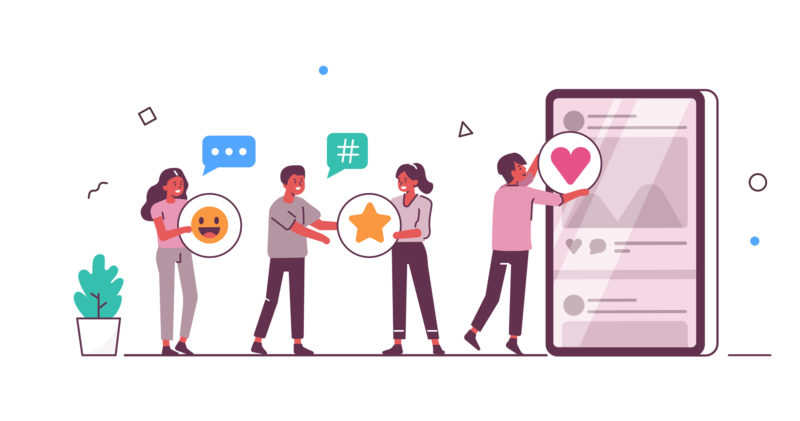
Table of Contents
- Why Lifecycle Marketing is Essential for Apps
- About Acquisition
- Thoughts About Onboarding
- Leveraging User Feedback
- How to Create Better Retention
- Traditional Online Methods of Marketing Your App
- Your Website
- On Social Media
- Collaborating with Micro-Influencers
- Other Methods of Marketing an App After Launch
- Talk to People Around You
- Consider Traditional Marketing
Chapter #1: Why Lifecycle Marketing is Essential for Apps
With so many apps to compete against, you need a marketing approach that makes you stand out.
Part of the process involves being aware of all stages of the typical user’s journey.
This is lifecycle marketing, and it works well for anyone who releases an app.
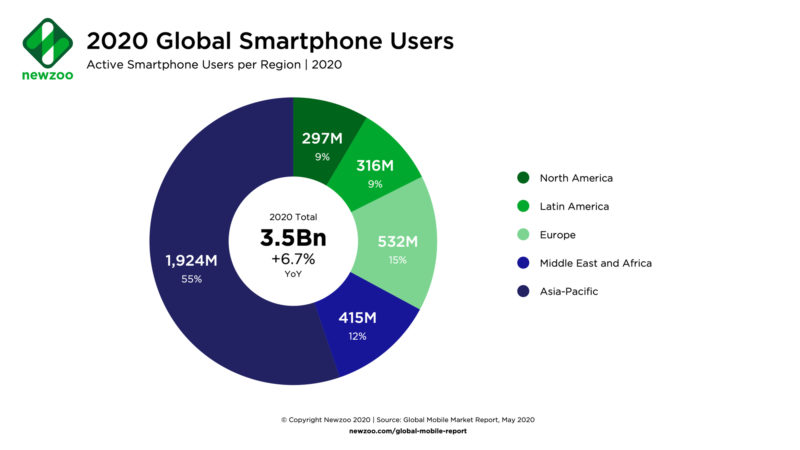
This marketing solution considers acquisition, onboarding, engagement, and retention as different stages in the lifecycle of an app.
The basic idea is that you constantly create new interest in your app.
When you do this in successful ways, the right audience will be more interested in downloading what you have to offer.
1.1 About Acquisition
The most essential part of marketing an app is making others aware of it and what it does. In addition, you have to show that your app has some sort of value.
When you do this at the right moments, it’s more likely that new users will decide to download your app and give it a fair shot.
This involves optimizing your presence on the app store, so the most eyes are on it.

There are several ways to do this, including:
- Updating your listing regularly – Once every two or three months, update your app listing with any new features or changes you’ve made. For example, add screenshots, update the title, and consider what keywords to highlight.
- Research appropriate keywords – Knowing what keywords are being searched for on the app store gives you a chance of using them yourself.
- Ask for reviews – Simple recognition can be used to bring in new users and cause old ones to redownload.
- Consider global appeal – Translate and localize the metadata in your app so people everywhere know what you are offering. This can give you better traffic and rankings for a higher chance of success.
PRO TIP:
When you consider other acquisition solutions you use, make sure you think about adding your app to the process. For instance, you could add a page on your website that focuses solely on the app.
1.2 Thoughts About Onboarding
Many people download an app and then forget it exists.
For instance, most people have 40 apps on their mobile devices but spend almost 90% of their time on less than 20 of them.
You want people to open and use your app regularly, so ensure the onboarding process facilitates that goal. There are several ways to do this.
- Build an in-app tutorial that shows new users how to do various things so they don’t give up due to confusion or difficulty.

- Create intriguing screens before someone logs in that describe your benefits. Explain why your app is so valuable and fun for someone trying it.
- Consider sending out welcome emails once someone makes an account. Give them a day or two to get comfortable with your app and then email them with info about your company, what you offer, and how the app can be used.
This is also a great way to get info on how people use your app since this might change your marketing methods.
Remember, adjustments are essential to great marketing.
Audience segmentation is also helpful – it shows you what people expect and want from your app so you can focus on those things during the onboarding process.
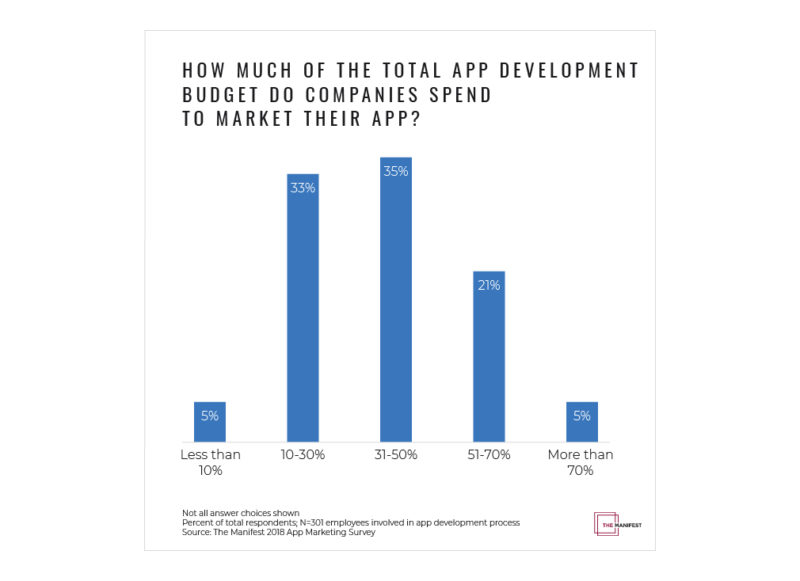
1.3 Leveraging User Feedback
User feedback is an invaluable resource for improving your app and enhancing user engagement.
When you track how people use your app, you gain insights into their preferences and pain points.
Encourage users to give feedback within the app, whether through ratings, reviews, or direct messages.
Use this feedback to inform your app’s development and marketing strategies.
Addressing user concerns and implementing requested features demonstrates your commitment to enhancing the user experience, increasing engagement, and retaining users.
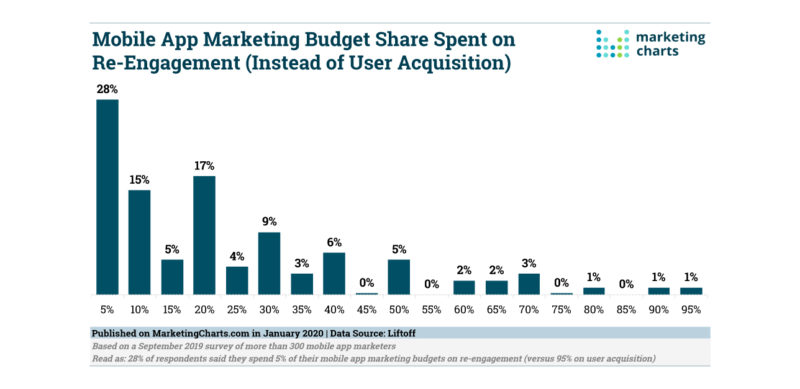
1.4 How to Create Better Retention
The truth is, if your mobile app never updates, people might get bored with it.
That’s why you want to pay attention to those who use it week after week and those who stop logging in after a while.
So how do you track the users and what they’re doing so you can make needed changes?
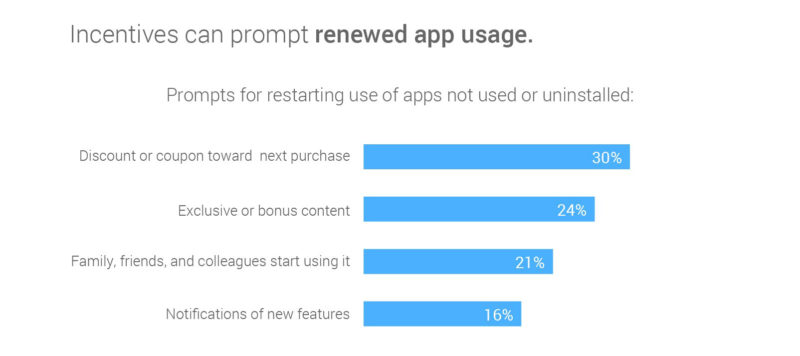
Photo Credit: thinkwithgoogle.com
You have several options.
- Implement a tracking tool in the app that shows you what people are doing. For example, if people tend to bail after working with a specific feature, that might mean it needs some changes made to it.
- Consider adding messages that remind users of new ways to use the app. For instance, if someone uses a particular feature that works with another part of the app, make sure you give them that information.
- Keep working to create better visibility for your mobile app – just seeing the app is still around might get people to use it more regularly. Banners on websites, social media posts, and blog posts can all work.
PRO TIP:
Experiment with different methods and see what happens. Then, use your knowledge to improve your marketing to bring in additional users and ensure they continue using the app.
Chapter #2: Traditional Online Methods of Marketing Your App
Your app is online, which means you should also be marketing it online.
With that said, there are many options for marketing today which can make it challenging to know where to put your focus.
Below we’ll share a few of the best places to market your app after its online launch. Try a few and see what results you get before giving something else a chance.

2.1 Your Website
Every mobile app should have a website associated with it.
People want to see that it’s provided by a real person or company and that you’ve truly invested in it.
For large companies, the app should be featured in a highlighted area on the site, not a header or footer. Its presence should be seen no matter where someone clicks.

Photo Credit: thinkwithgoogle.com
2.2 On Social Media
Another place to market your app is on social media.
Both organic and paid searches are excellent ways to get your app in front of potential users.
Organic marketing relies on having a presence on sites like Twitter, Instagram, Facebook, and others. Create accounts, follow appropriate people in your industry, and make valuable posts.
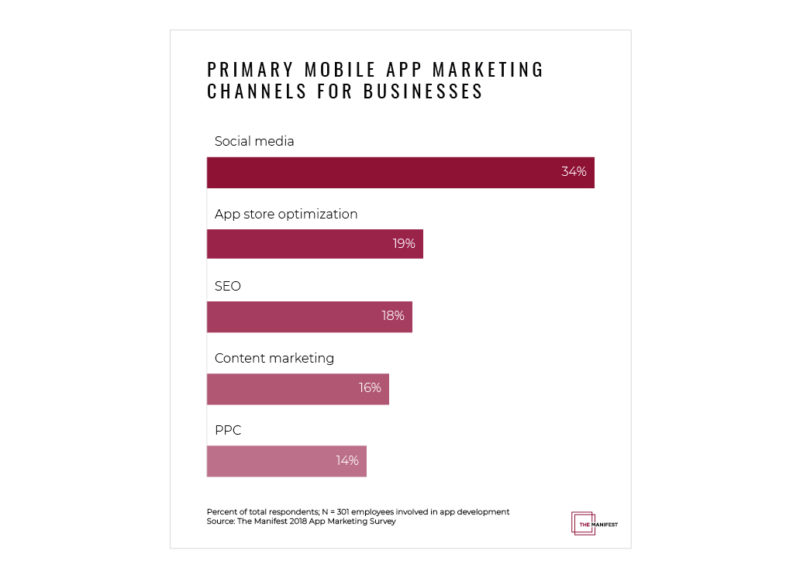
Paid social media marketing is also a helpful option. It makes it more likely people will find out about your app and choose to download it.
It’s up to you to decide whether to focus on solely organic, solely paid, or a combination of the two. Generally, the last option works best.
2.3 Collaborating with Micro-Influencers
Influencer marketing doesn’t always require partnering with celebrities or individuals with massive followings.
Consider collaborating with micro-influencers—individuals who have a smaller but highly engaged audience within your app’s niche.
Identify micro-influencers who align with your target audience and share an interest in your app’s category.
These influencers often have a more authentic and relatable connection with their followers.
By engaging micro-influencers, you can leverage their trust and influence to promote your app effectively to a niche audience that is more likely to convert into users.
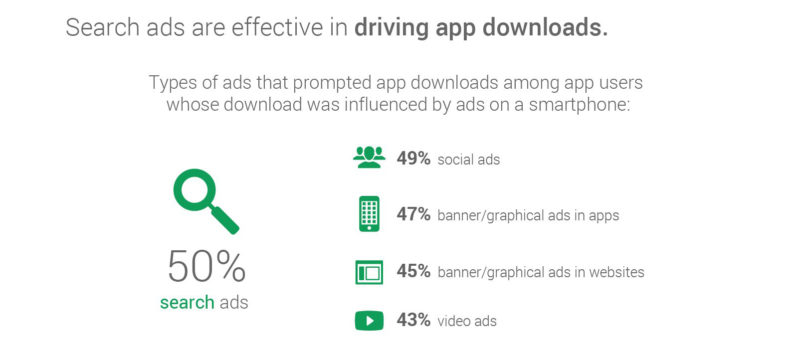
Photo Credit: thinkwithgoogle.com
Chapter #3: Other Methods of Marketing an App After Launch
Marketing your app online is a good start, and it can undoubtedly catapult you to success. But that doesn’t mean you should ignore other options.
If you have the means to share what your app can do and create new users, why not go for it?
The next part of this article will delve into ways to market that aren’t as conventional and don’t take place online.

3.1 Talk to People Around You
Everyone has family, friends, and others who we spend time with. If you haven’t told them about your app, why not?
Think about the people close to you that would be the ideal user of your app and then approach them about it. Most of them will be glad to check out what you made.
Sure, this might seem small, but it can add up. If every person tells a few more and those people do the same, the numbers really start to add up.
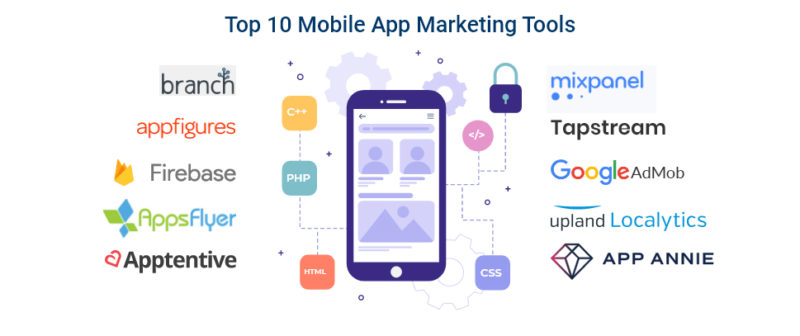
Photo Credit: dotcominfoway.com
3.2 Consider Traditional Marketing
Take a minute to think of how you’d market a non-app. Are there other promotion techniques you can think of?
Maybe you want to have ads on streaming clips online. On the other hand, perhaps you own a store and want to promote your app through old-fashioned signs.
Marketing an app can take all sorts of forms, so don’t be shy about getting creative. Add some kind of incentive for downloading, and even unusual methods might work for you.
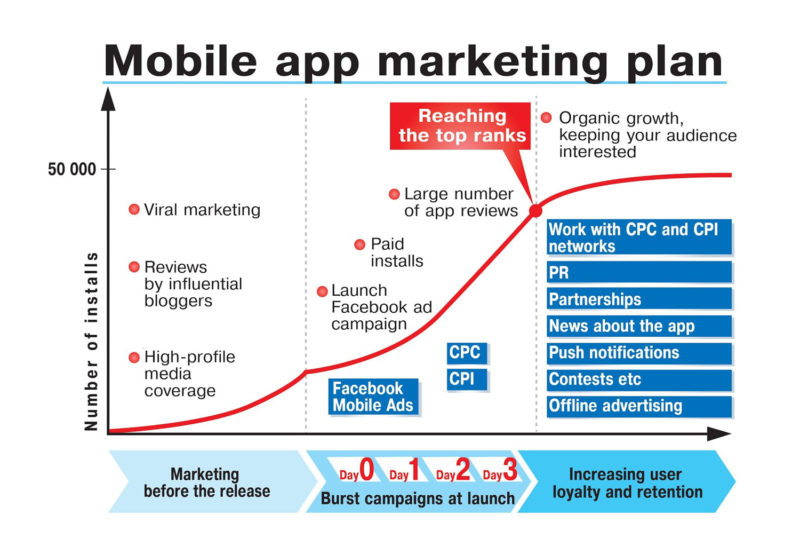
Photo Credit: smartinsights.com
Final Thoughts
There are tons of ways to market an app after launch, and it can take time to find what works for you.
After all, every app is unique, and your audience might want something specific you still need to discover.
No matter what marketing solutions you choose, you have to know your app inside and out. You should know who will use it and what your business model is.
Consider our Simple Starter package as a way to determine the answers to all of these questions. Get a technical write-up of your app, thorough market and user research, and wireframes to move forward with.
Which app marketing method has worked best for you in the past? Which one hasn’t been as successful as you hoped it would be?

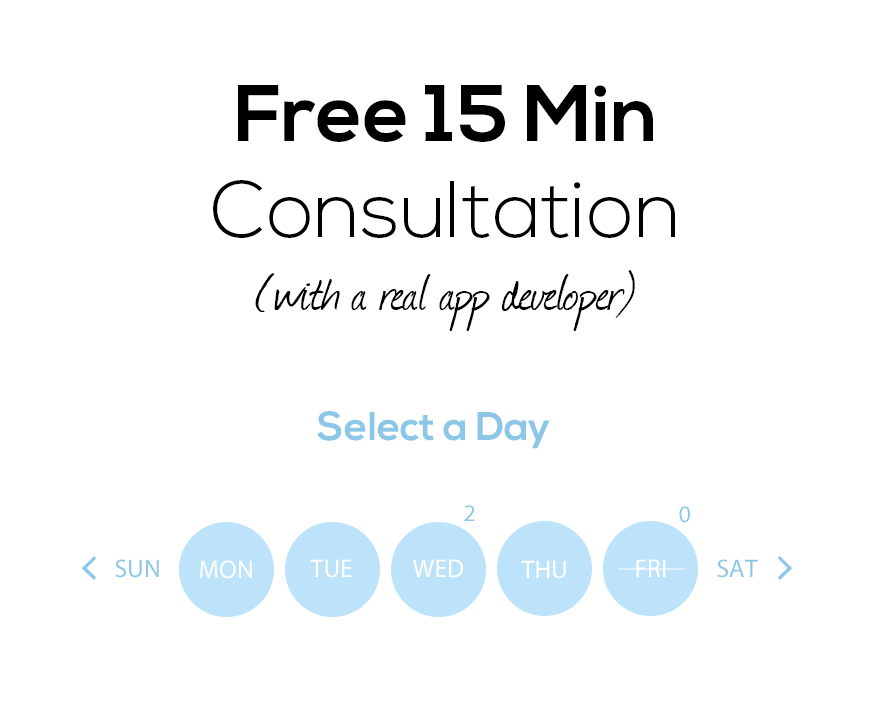


Your inbox wants some love.
Stay informed with Webiotic latest










0 Comments